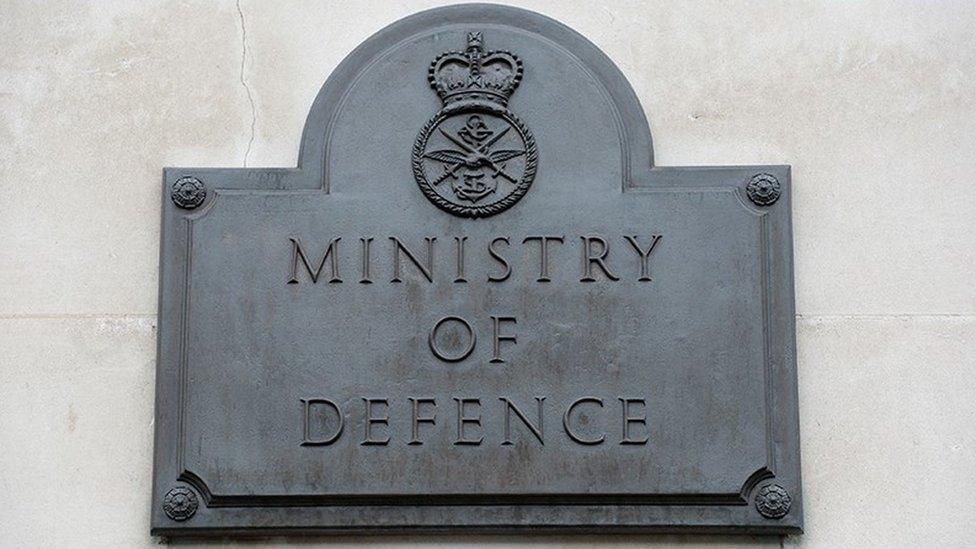Public bodies scrutinised for FOI request failings
- Published

The Ministry of Defence was among those sent enforcement notices
Five public bodies have been named and shamed for failures to meet expected standards in responding to Freedom of Information Act (FOI) requests.
The Information Commissioner's Office (ICO) has revealed action against the Ministry of Defence (MoD), Environment Agency (EA) and Medicines & Healthcare Products Regulatory Agency (MHPRA).
They were sent enforcement notices.
The ICO also sent recommendations to Tower Hamlets Council and Liverpool City Council.
The ICO is the UK's independent regulator for data protection and information rights law.
It issued enforcement notices to the MoD and the EA in June and August, telling them to respond to hundreds of requests that had passed the legal deadline of 20 working days for a response.
In some cases, responses were years overdue in both organisations, the regulator said.
Failure to comply with an enforcement notice may lead to a public body being found in contempt of court.
In July, the ICO issued a practice recommendation to Tower Hamlets Council for "consistently failing to meet the expected level of performance in terms of responding to FOI Act requests within the statutory time frame".
It noted the number of overdue requests had increased in the first half of the year.
'Consistently poor level'
The ICO sent a further practice recommendation to Liverpool City Council for a "consistently poor level of performance" in responding to FOIs.
It said this had been "highlighted by the disproportionately high number of complaints about response times submitted to the Information Commissioner, as well as the number of decision notices he has had to issue to the council to compel it to respond to outstanding requests".
Liverpool City Council said it had already put an improvement plan in place to tackle the backlog and has established a central corporate information team.
The improvement actions, which has already resulted in a 10% increase in responses, the council spokesman said.
In August, it sent a practice recommendation to the MHRA, an executive agency of the Department of Health and Social Care.
It said: "Prior to 2021, MHRA had manageable levels of information requests and systems in place which were sufficient to cope with those volumes.
"However, volumes and the complexity of information requests (especially with the introduction of Covid-19 vaccines) has increased from 2021/2022 onwards and it has become increasingly apparent its systems and procedures are no longer fit for purpose or sufficient to meet increased volumes and increasing levels of complexity."
There has been a "declining trend" in the MHRA responding to requests in a timely manner, it said.
'Effectively and efficiently'
Warren Seddon, director of FOI & transparency at the ICO, said: "One year on from publishing our new approach to enforcing people's right to access public information, we have delivered more than double the action we had taken in the 17 years since FOI law came into force.
"Responding to Freedom of Information Act requests effectively and efficiently is important for maintaining transparency as well as the trust of the public."
He added senior leaders in all public authorities should make sure "their own organisation's performance and processes comply with the law as the public rightly expect them to and that we will use our powers to enforce when needed".
The Freedom of Information Act 2000 provides public access to information held by public authorities, through publication schemes and the public making requests.
- Published8 September 2022

- Published19 June 2017